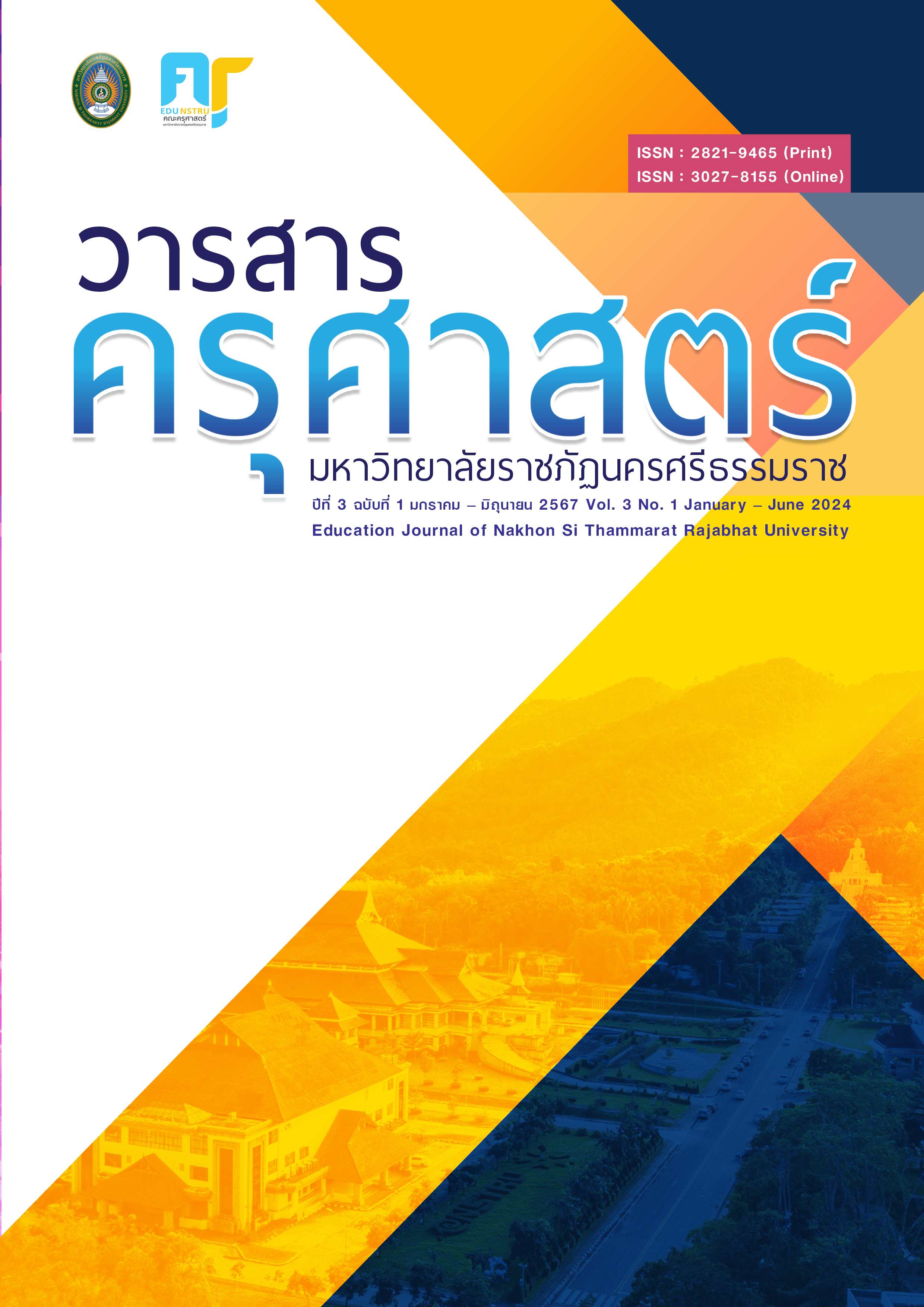รูปแบบการจัดการเรียนรู้ตามแนวคิดสมัยใหม่
Main Article Content
บทคัดย่อ
รูปแบบการจัดการเรียนรู้ตามแนวคิดสมัยใหม่ คือ การผสมผสานการจัดการเรียนรู้โดยการนำกรอบทฤษฎี หลักการ และแนวคิดที่สอดคล้องกับการเปลี่ยนแปลงของระบบการจัดการศึกษาของนักศึกษาสาขาวิชาการศึกษาปฐมวัย ซึ่งจะต้องรวบรวมองค์ความรู้ในเนื้อหาวิชามาบูรณาการกับสถานการณ์ปัจจุบัน ที่พบเจอในสถานศึกษาที่ได้ปฏิบัติงาน นักศึกษาจึงจำเป็นต้องอาศัยเทคโนโลยีรอบตัว (T) ร่วมกับการเรียนรู้แบบผู้ใหญ่ (A) ที่ส่งเสริมให้ผู้เรียนได้ค้นคว้าหาความรู้ เพื่อนำมาออกแบบการจัดประสบการณ์ให้กับเด็กปฐมวัยตามเนื้อหา (C) ที่กำหนดไว้ในหลักสูตรการศึกษาปฐมวัย พุทธศักราช 2560 ให้มีความสอดคล้องกับวัย พัฒนาการ (L) และบริบท (X) ของสถานศึกษาที่ปฏิบัติงาน ทั้งนี้ให้การออกแบบการณ์จัดประสบการณ์นั้น นักศึกษาจึงควรมีทักษะในการวิจัย (R) ที่เป็นพื้นฐานของการสังเกตพัฒนาการซึ่งจะนำไปสู่การปรับปรุง พัฒนา และส่งเสริมพัฒนาการ ทำให้เกิดประสิทธิภาพ และประสิทธิผลในการปฏิบัติงาน รวมทั้งยังเป็นการปลูกฝังการเป็นครูมืออาชีพที่มีสมรรถนะตามมาตรฐานความรู้วิชาชีพครู
Article Details

อนุญาตภายใต้เงื่อนไข Creative Commons Attribution-NonCommercial-NoDerivatives 4.0 International License.
บทความที่ได้รับการตีพิมพ์เป็นลิขสิทธิ์ของวารสารครุศาตร์ มหาวิทยาลัยราชภัฏนครศรีธรรมราช
ข้อความที่ปรากฏในบทความแต่ละเรื่องในวารสารวิชาการเล่มนี้เป็นความคิดเห็นส่วนตัวของผู้เขียนแต่ละท่านไม่เกี่ยวข้องกับวารสารครุศาสตร์ มหาวิทยาลัยราชภัฏนครศรีธรรมราช
เอกสารอ้างอิง
Angeli, C., & Valanides, N. (2009). Epistemological and methodological issues for the conceptualization, development, and assessment of ICT-TPCK: advances in technological pedagogical content knowledge. Computers & Education, 52(1), 154-168.
Charungkiatikul, S. (2018, March 13). The Twenty-First Century Skill. TruePlookpanya. Retrieved from https://www.trueplookpanya.com/education/content/66054/-teaartedu-teaart-teaarttea- (in Thai)
Keesukpan, E. (1995). Management Skills and Practices. Bangkok: SukkhapabjaiPUB.
Khamanee, T. (2017). Teaching Science: Knowledge for the learning process effective. (18 ed). Bangkok: Chulalongkorn University. (in Thai)
Mingmuang, S. (2017). Classroom Research for Elementary Teachers. Bangkok: Mac Publishing.
Office of Professional Standards. (2018, June 22). Teacher Professional Knowledge Standards Competency Base of the Teachers' Council. Retrieved from http://www.local.moi.go.th/2009/pdf/ksp1.pdf (in Thai)
Office of The Education Council. (2007). Early Childhood Development Policy and Strategy (0-5 Years) Long-Term 2007-2016. Bangkok: V.T.C.Communication Ltd. (in Thai)
Panich, V. (2014). Ways to create learning for students in the 21st century. Bangkok : Siam Commercial Foundation.
Pattarakornan, N. (2015). Concepts and Management Techniques of Adult Learning. Journal of education silpakorn university, 12(1,2), 18-29. Retrieved from https://so02.tci-thaijo.org/index.php/suedujournal/article/view/94934
Paweenbampen, P. (2017). Research-Based Learning. CMU Journalof Education, 1(2), 62–71. Retrieved from https://so01.tci-thaijo.org/index.php/cmujedu/article/view/166369
Praditthabatuka, P., Intarakhamhaeng, U., & Supparerkchaisakul, N. (2013). The Psycho-Social Causal Factors Affecting the Competency and Research-Based Instruction Behaviors of Faculty Members of Rajabhat Universities in Bangkok Metropolitan and Vicinity Area1. Journal of Behavioral Science, 19(2), 1-16. Retrieved from http://bsris.swu.ac.th/journal/190256/3p.pdf


